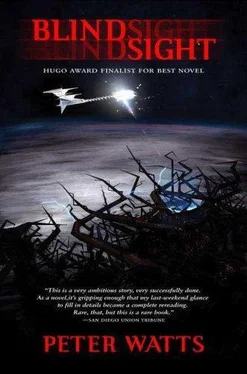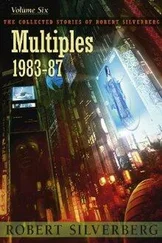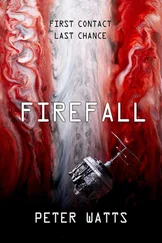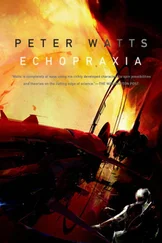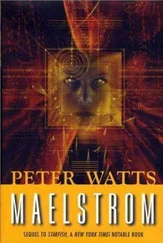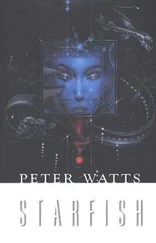The grownups showed up eventually, of course. Medicine was bestowed, ambulances called. Parents were outraged, diplomatic volleys exchanged, but it’s tough to drum up neighborhood outrage on behalf of your injured baby when playground surveillance from three angles shows the little darling — and five of his buddies — kicking in the ribs of a disabled boy. My mother, for her part, recycled the usual complaints about problem children and absentee fathers — Dad was off again in some other hemisphere — but the dust settled pretty quickly. Pag and I even stayed friends, after a short hiatus that reminded us both of the limited social prospects open to schoolyard rejects who don’t stick together.
So I survived that and a million other childhood experiences. I grew up and I got along. I learned to fit in. I observed, recorded, derived the algorithms and mimicked appropriate behaviors. Not much of it was — heartfelt, I guess the word is. I had friends and enemies, like everyone else. I chose them by running through checklists of behaviors and circumstances compiled from years of observation.
I may have grown up distant but I grew up objective , and I have Robert Paglino to thank for that. His seminal observation set everything in motion. It led me into Synthesis, fated me to our disastrous encounter with the Scramblers, spared me the worse fate befalling Earth. Or the better one, I suppose, depending on your point of view. Point of view matters : I see that now, blind, talking to myself, trapped in a coffin falling past the edge of the solar system. I see it for the first time since some beaten bloody friend on a childhood battlefield convinced me to throw my own point of view away.
He may have been wrong. I may have been. But that, that distance — that chronic sense of being an alien among your own kind — it’s not entirely a bad thing.
It came in especially handy when the real aliens came calling.
“Blood makes noise.”
—Susanne Vega
Imagine you are Siri Keeton:
You wake in an agony of resurrection, gasping after a record-shattering bout of sleep apnea spanning one hundred forty days. You can feel your blood, syrupy with dobutamine and leuenkephalin, forcing its way through arteries shriveled by months on standby. The body inflates in painful increments: blood vessels dilate; flesh peels apart from flesh; ribs crack in your ears with sudden unaccustomed flexion. Your joints have seized up through disuse. You’re a stick-man, frozen in some perverse rigor vitae .
You’d scream if you had the breath.
Vampires did this all the time, you remember. It was normal for them, it was their own unique take on resource conservation. They could have taught your kind a few things about restraint, if that absurd aversion to right-angles hadn’t done them in at the dawn of civilization. Maybe they still can. They’re back now, after all — raised from the grave with the voodoo of paleogenetics, stitched together from junk genes and fossil marrow steeped in the blood of sociopaths and high-functioning autistics. One of them commands this very mission. A handful of his genes live on in your own body so it too can rise from the dead, here at the edge of interstellar space. Nobody gets past Jupiter without becoming part vampire.
The pain begins, just slightly, to recede. You fire up your inlays and access your own vitals: it’ll be long minutes before your body responds fully to motor commands, hours before it stops hurting. The pain’s an unavoidable side effect. That’s just what happens when you splice vampire subroutines into Human code. You asked about painkillers once, but nerve blocks of any kind compromise metabolic reactivation . Suck it up, soldier.
You wonder if this was how it felt for Chelsea, before the end. But that evokes a whole other kind of pain, so you block it out and concentrate on the life pushing its way back into your extremities. Suffering in silence, you check the logs for fresh telemetry.
You think: That can’t be right .
Because if it is, you’re in the wrong part of the universe. You’re not in the Kuiper Belt where you belong: you’re high above the ecliptic and deep into the Oort, the realm of long-period comets that only grace the sun every million years or so. You’ve gone interstellar , which means (you bring up the system clock) you’ve been undead for eighteen hundred days.
You’ve overslept by almost five years.
The lid of your coffin slides away. Your own cadaverous body reflects from the mirrored bulkhead opposite, a desiccated lungfish waiting for the rains. Bladders of isotonic saline cling to its limbs like engorged antiparasites, like the opposite of leeches. You remember the needles going in just before you shut down, way back when your veins were more than dry twisted filaments of beef jerky.
Szpindel’s reflection stares back from his own pod to your immediate right. His face is as bloodless and skeletal as yours. His wide sunken eyes jiggle in their sockets as he reacquires his own links, sensory interfaces so massive that your own off-the-shelf inlays amount to shadow-puppetry in comparison.
You hear coughing and the rustling of limbs just past line-of-sight, catch glimpses of reflected motion where the others stir at the edge of vision.
“Wha—” Your voice is barely more than a hoarse whisper. “…happ…?”
Szpindel works his jaw. Bone cracks audibly.
“…Sssuckered,” he hisses.
You haven’t even met the aliens yet, and already they’re running rings around you.
* * *
So we dragged ourselves back from the dead: five part-time cadavers, naked, emaciated, barely able to move even in zero gee. We emerged from our coffins like premature moths ripped from their cocoons, still half-grub. We were alone and off course and utterly helpless, and it took a conscious effort to remember: they would never have risked our lives if we hadn’t been essential.
“Morning, commissar.” Isaac Szpindel reached one trembling, insensate hand for the feedback gloves at the base of his pod. Just past him, Susan James was curled into a loose fetal ball, murmuring to herselves. Only Amanda Bates, already dressed and cycling through a sequence of bone-cracking isometrics, possessed anything approaching mobility. Every now and then she tried bouncing a rubber ball off the bulkhead; but not even she was up to catching it on the rebound yet.
The journey had melted us down to a common archetype. James’ round cheeks and hips, Szpindel’s high forehead and lumpy, lanky chassis — even the enhanced carboplatinum brick shit-house that Bates used for a body — all had shriveled to the same desiccated collection of sticks and bones. Even our hair seemed to have become strangely discolored during the voyage, although I knew that was impossible. More likely it was just filtering the pallor of the skin beneath. Still. The pre-dead James had been dirty blond, Szpindel’s hair had been almost dark enough to call black — but the stuff floating from their scalps looked the same dull kelpy brown to me now. Bates kept her head shaved, but even her eyebrows weren’t as rusty as I remembered them.
We’d revert to our old selves soon enough. Just add water. For now, though, the old slur was freshly relevant: the Undead really did all look the same, if you didn’t know how to look.
If you did, of course — if you forgot appearance and watched for motion, ignored meat and studied topology — you’d never mistake one for another. Every facial tic was a data point, every conversational pause spoke volumes more than the words to either side. I could see James’ personae shatter and coalesce in the flutter of an eyelash. Szpindel’s unspoken distrust of Amanda Bates shouted from the corner of his smile. Every twitch of the phenotype cried aloud to anyone who knew the language.
Читать дальше
